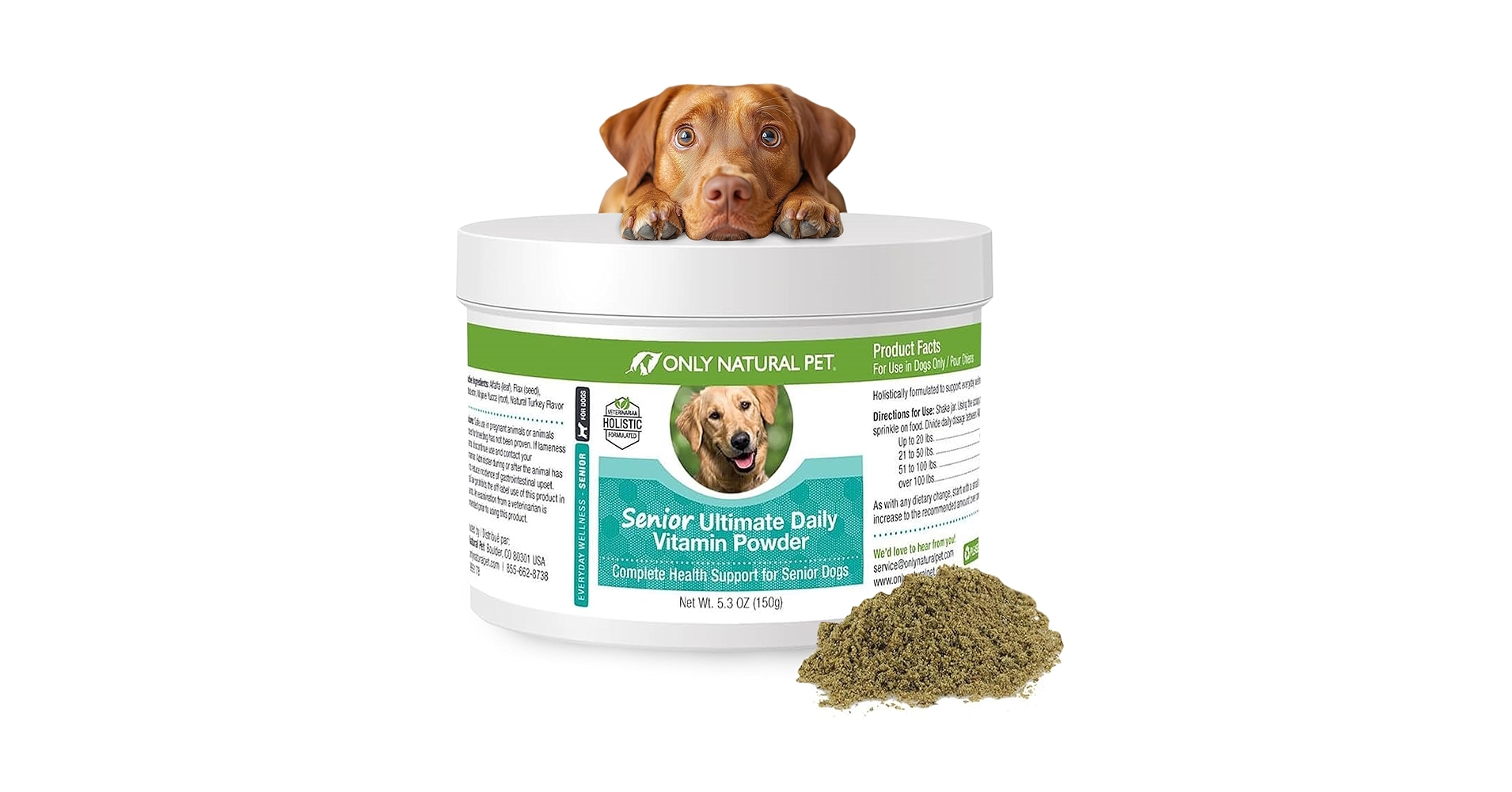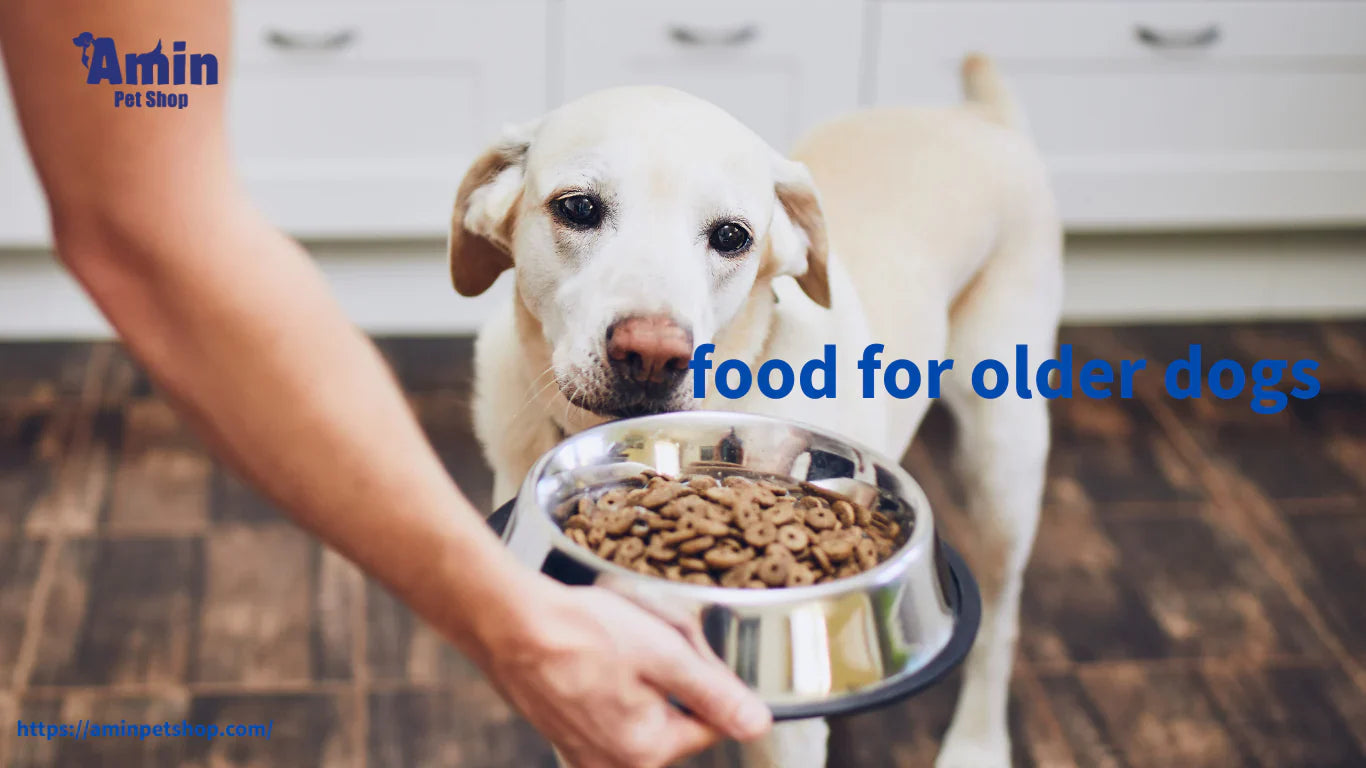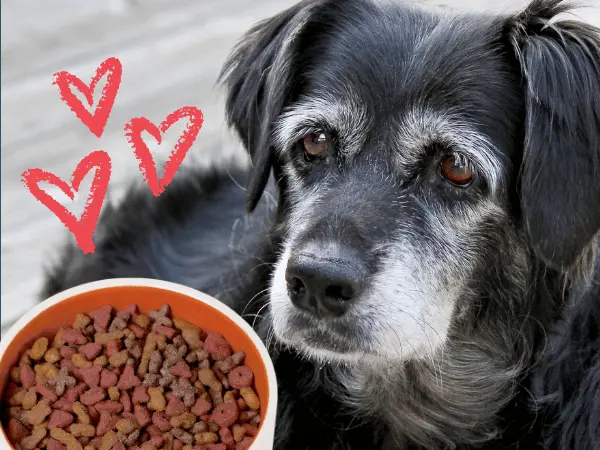As an Amazon Associate, I earn from qualifying purchases
If you have an older dog, you know how important it is to keep them healthy and happy. But as your furry friend ages, their diet needs to change too.
Feeding an old dog isn’t just about giving the same food as before—it’s about understanding what your pet’s body really needs now. Are you unsure what to feed your senior dog? Wondering which foods will help them feel their best and stay active?
Keep reading, because getting this right can make a big difference in your dog’s comfort and quality of life. You’ll discover simple, practical tips that anyone can use to give their old dog the nutrition they deserve.

Signs Of Aging In Dogs
Dogs age just like people do. Their bodies and minds change over time. Knowing the signs of aging helps you care for your old dog better. Early detection of these signs allows you to adjust their diet and lifestyle. This keeps your dog happy and healthy in their senior years.
Physical Changes
Older dogs may have gray or white fur around their muzzle. Their eyes can become cloudy or less bright. Muscle tone often decreases, making them look thinner or weaker. Joints may stiffen, causing slower or more careful movements. You might notice weight gain or loss too. These changes show your dog is entering a new stage of life.
Behavioral Shifts
Senior dogs can act differently than before. They might sleep more during the day. Some dogs become less interested in playing or walking. Others may get confused or forgetful. You could see signs of anxiety or irritability. These shifts often mean your dog is feeling the effects of aging.
Health Concerns
Older dogs face more health issues than younger ones. They may develop arthritis, causing pain in their joints. Dental problems are common and can affect eating. Digestive issues might appear, requiring special diets. Some dogs have trouble hearing or seeing well. Watch for changes in appetite or bathroom habits. These concerns need attention to keep your dog comfortable.

Nutritional Needs Of Senior Dogs
Senior dogs need special nutrition to stay healthy and active. Their bodies change as they age. This means their diet must change too. Good food supports their joints, heart, and immune system. It also helps maintain a healthy weight. Understanding what to feed an old dog starts with their nutritional needs.
Protein Requirements
Older dogs need high-quality protein. Protein helps repair tissues and build muscles. Muscles tend to shrink as dogs age. Providing enough protein slows this process. Choose lean meats like chicken or fish. Avoid too much fat in their protein sources.
Essential Vitamins And Minerals
Vitamins and minerals keep senior dogs strong. Vitamin E supports the immune system. Vitamin C helps with joint health. Calcium and phosphorus maintain bone strength. Zinc promotes healthy skin and coat. Balanced supplements can fill gaps in their diet.
Calorie Management
Older dogs burn fewer calories daily. Too many calories cause weight gain and health problems. Feed smaller portions but more often. Choose foods with fewer fats and carbs. Monitor their weight regularly to adjust feeding amounts. Healthy weight supports mobility and overall wellness.
Top Nutritious Foods For Older Dogs
Older dogs need special foods to stay healthy and strong. Their bodies change, so their diet must change too. Choosing the right foods helps support joints, digestion, and energy levels. The best foods for senior dogs provide nutrients that keep them active and happy.
High-quality Proteins
Protein helps repair muscles and maintain strength. Older dogs need proteins that are easy to digest. Chicken, turkey, and fish are great options. Avoid low-quality proteins with fillers or by-products. Lean meats support healthy muscles without adding extra fat.
Healthy Fats
Fats give energy and keep skin soft. Omega-3 and Omega-6 fatty acids reduce inflammation. Fish oil and flaxseed oil are rich in these fats. Healthy fats also support brain function and coat shine. Balance is key to avoid weight gain.
Digestible Carbohydrates
Carbohydrates provide energy and fiber for digestion. Brown rice, sweet potatoes, and oats are easy to digest. Fiber helps keep the digestive system regular. Avoid high-starch or sugary carbs that cause weight gain. Choose whole grains for steady energy release.
Antioxidant-rich Ingredients
Antioxidants protect cells from damage and aging. Blueberries, spinach, and carrots have many antioxidants. These ingredients support the immune system and joint health. Vitamins C and E also fight free radicals. Antioxidant-rich foods help slow aging effects.
Homemade Meal Ideas
Feeding an old dog homemade meals can improve their health and happiness. Homemade food lets you control what your dog eats. It ensures fresh, high-quality ingredients without fillers or additives. Older dogs have special needs. Their meals must be gentle on digestion and rich in nutrients.
Balanced Recipes
Good homemade meals have protein, carbs, and fats. Cook lean meats like chicken or turkey. Add cooked vegetables like carrots or green beans. Include grains such as rice or oatmeal. A small amount of healthy fat like fish oil helps coat their fur and supports joints. Make sure to keep portions moderate for weight control.
Safe Ingredients To Use
Choose simple ingredients that dogs digest easily. Cooked chicken, turkey, or lean beef are safe. Vegetables like pumpkin, sweet potato, and peas add fiber. Plain rice or quinoa provide energy. Use small amounts of olive or fish oil. Avoid spices, salt, and sugar. Fresh water must always be available.
Foods To Avoid
Never feed dogs chocolate, grapes, or raisins. Onions and garlic can harm their blood cells. Avoid fatty or fried foods that upset digestion. Bones from cooked meat risk choking or damage. Dairy can cause stomach upset in many dogs. Artificial sweeteners like xylitol are toxic. Keep these out of your dog’s meals.
Supplements For Senior Dog Health
Senior dogs need special care to stay healthy and happy. Supplements can help support their changing bodies. These products target common issues in older dogs. They improve comfort, brain function, and digestion. Choosing the right supplements can improve your dog’s quality of life.
Joint Support
Older dogs often suffer from stiff joints and arthritis. Supplements like glucosamine and chondroitin help protect cartilage. Omega-3 fatty acids reduce inflammation and ease joint pain. These supplements help your dog move with less discomfort. Regular use can improve mobility and activity levels.
Cognitive Enhancers
Memory and focus can decline in senior dogs. Supplements with antioxidants and vitamins support brain health. Ingredients like DHA and vitamin E protect nerve cells. These help maintain alertness and reduce confusion. Cognitive enhancers can keep your dog sharp and active.
Digestive Aids
Older dogs may have weaker digestion and nutrient absorption. Probiotics improve gut health and balance bacteria. Fiber supplements promote regular bowel movements. Digestive enzymes help break down food better. These aids support a healthy digestive system and better nutrient use.

Feeding Tips For Longevity
Feeding an older dog needs care and attention. Their body changes, so their diet must adapt. Good feeding supports their health and can add years to their life. Simple changes in how and what you feed can make a big difference.
Meal Frequency And Portion Control
Older dogs digest food slower than young dogs. Smaller meals given more often help their digestion. Split their daily food into two or three smaller meals. Avoid large portions that can upset their stomach. Portion control prevents weight gain and keeps energy steady.
Hydration Importance
Water is very important for older dogs. They can drink less as they age. Always provide fresh, clean water. Wet food can help increase fluid intake. Proper hydration supports kidney health and helps prevent urinary problems.
Monitoring Weight And Health
Keep a close eye on your dog’s weight. Sudden gain or loss can signal health issues. Regularly check their body condition and energy levels. Visit the vet for health checks and diet advice. Early detection of problems helps your dog stay healthy longer.
Frequently Asked Questions
What Is The Best Diet For An Old Dog?
Older dogs need easily digestible food with balanced nutrients. Focus on high-quality protein, healthy fats, and fiber to support aging joints and digestion.
How Often Should I Feed My Senior Dog?
Feed your senior dog two smaller meals daily. This helps maintain energy levels and prevents overeating or digestive issues common in older dogs.
Can Old Dogs Eat The Same Food As Puppies?
No, senior dogs require different nutrition than puppies. Puppy food is higher in calories and fat, which can cause weight gain in older dogs.
Should I Add Supplements To My Old Dog’s Diet?
Supplements like glucosamine and omega-3 fatty acids can support joint health. Always consult a vet before adding supplements to your dog’s diet.
Conclusion
Feeding an old dog needs care and attention. Choose foods that support their health and energy. Keep their meals balanced with proteins, fats, and vitamins. Watch their weight and adjust portions if needed. Fresh water should always be available. Regular vet visits help catch any diet problems early.
A good diet can help your dog feel happy and strong. Small changes in food can make a big difference. Give your old dog the nutrition they deserve every day.
As an Amazon Associate, I earn from qualifying purchases

